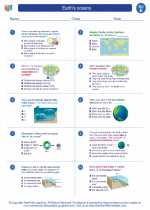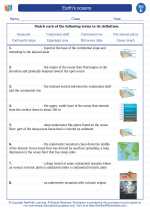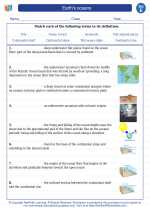Blade Study Guide
A blade is a flat and elongated part of a tool or machine, typically made of metal or another hard material, that is used to cut, shape, or otherwise work on materials such as wood, metal, or food. Blades come in various shapes and sizes, each designed for specific tasks.
Types of Blades
- Circular Saw Blade: a disc-shaped blade with teeth around the edge, used with a circular saw to cut through materials such as wood, metal, or plastic.
- Knife Blade: a sharp-edged, pointed tool used for cutting or stabbing, typically made of metal, ceramic, or other materials.
- Scalpel Blade: a small and extremely sharp bladed instrument used for surgery and anatomical dissection.
- Propeller Blade: the rotating wing of a propeller or a helicopter rotor.
- Blade of Grass: the flat, elongated part of a grass plant that grows from the stem and is often used to refer to a single leaf-like structure of grass.
Functions of Blades
- Cutting: Blades are primarily designed to cut through materials, such as slicing through wood, metal, or food items.
- Shaping: Some blades are used for shaping materials, such as carving or sculpting.
- Propulsion: Blades on propellers and helicopter rotors are designed to create thrust and lift for aircraft and other vehicles.
Blade Safety Tips
When working with blades, it's important to follow safety guidelines to prevent accidents and injuries:
- Always use appropriate personal protective equipment, such as gloves and safety goggles, when handling blades.
- Keep blades sharp and in good condition to prevent slipping and accidents.
- Store blades in a safe and secure location when not in use, and keep them out of reach of children.
- Follow proper handling and operating procedures for tools and machines equipped with blades.
Blade Maintenance
To ensure the effectiveness and longevity of blades, regular maintenance is essential:
- Regularly sharpen blades to maintain their cutting edge.
- Clean blades after each use to remove any debris or residue that may affect performance.
- Inspect blades for any signs of damage or wear, and replace them if necessary.
- Properly lubricate moving parts of machines and tools to reduce friction and wear on blades.
◂Science Worksheets and Study Guides Fifth Grade. Earth's oceans
Study Guide Earth's oceans
Earth's oceans  Worksheet/Answer key
Worksheet/Answer key Earth's oceans
Earth's oceans  Worksheet/Answer key
Worksheet/Answer key Earth's oceans
Earth's oceans  Worksheet/Answer key
Worksheet/Answer key Earth's oceans
Earth's oceans  Vocabulary/Answer key
Vocabulary/Answer key Earth's oceans
Earth's oceans  Vocabulary/Answer key
Vocabulary/Answer key Earth's oceans
Earth's oceans 

 Worksheet/Answer key
Worksheet/Answer key
 Worksheet/Answer key
Worksheet/Answer key
 Worksheet/Answer key
Worksheet/Answer key
 Vocabulary/Answer key
Vocabulary/Answer key
 Vocabulary/Answer key
Vocabulary/Answer key

The resources above cover the following skills:
EARTH AND SPACE SCIENCE
Earth’s Systems
Identify the distribution of freshwater and salt water on Earth (e.g., oceans, lakes, rivers, glaciers, ground water, polar ice caps) and construct a graphical representation depicting the amounts and percentages found in different reservoirs.